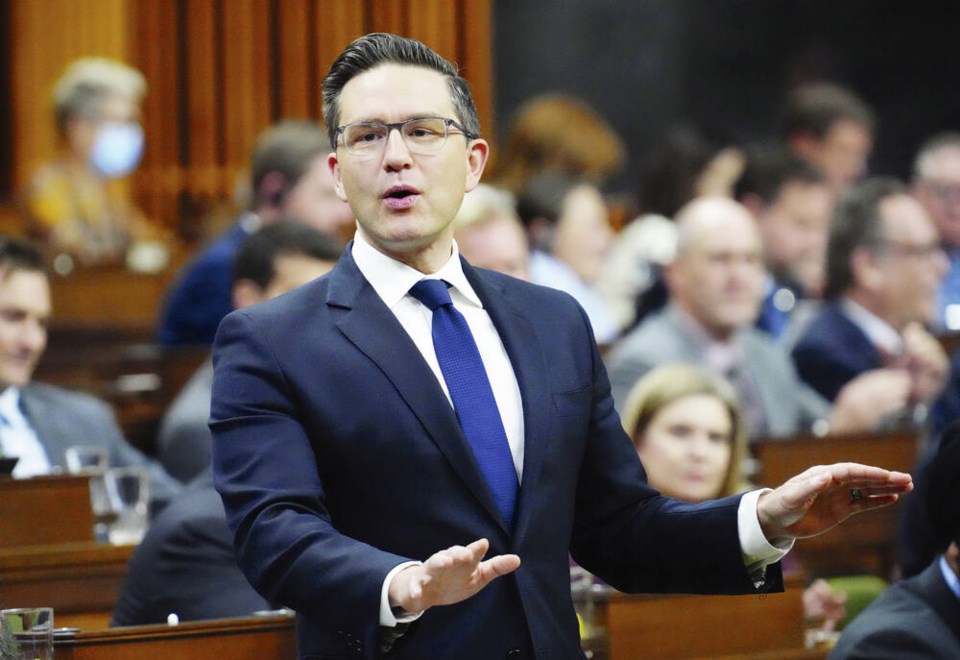Pierre Poilievre, the new Opposition Leader of Canada’s Parliament, has said that Milton Friedman has been a major influence on his economic thinking. To shed light on this claim, let’s examine Friedman’s views on three major issues in today’s economy.
Friedman on tax cuts: Poilievre has argued that “we must simplify and cut taxes,” and many leading politicians in various countries, from Ronald Reagan and Margaret Thatcher to Donald Trump and Liz Truss, have advocated major tax cuts, and have cited Friedman’s views as an important justification for their tax policies.
In any case, what did Friedman actually say about cutting taxes?
On many occasions, Friedman, discussing government budget deficits, argued vociferously that “the deficit is a symptom, spending is the disease.”
Friedman clearly and persuasively asserted that, as long as government expenditures remain unchanged, it is relatively unimportant whether the expenditures are financed by taxes or by borrowing, since government debt represents “hidden taxes” (taxes imposed on future generations).
A lightweight economist named Arthur Laffer has argued that by cutting tax rates the national income will be stimulated to grow so much that tax revenues will go up even as rates are reduced, and “tax cuts can pay for themselves.” Very recently, we have heard this argument from Liz Truss.
But in 1980, presidential candidate George H.W. Bush, a devout conservative, rightly dismissed Laffer’s argument as “voodoo economics.” More importantly, Friedman himself rejected Laffer’s supply-side economics.
So, a politician who is a true disciple of Friedman must advocate reductions in government programs in parallel with any proposed tax cuts. It remains to be seen what Poilievre proposes in specific government reductions.
Reducing CPP/OAS or health expenditures, which are major chunks of the federal government expenditures, is almost certainly political suicide.
Friedman on air pollution: Friedman acknowledged openly that under capitalism not all markets work well and that the market for unpolluted air is a clear example of this market failure.
In Price Theory, one of Friedman’s major publications (though full of intimidating mathematics and not much read by non-economists), Friedman argues that “if smoke from my chimney dirties your house, and it is not feasible for you to require me to compensate you for the cost imposed on you,” then the market has failed to do its job and “a command element” (government regulation) would have to be introduced to solve the problem.
Of course, Friedman portrayed this as a small, rather unimportant problem, but the principle was clear to him.
If he lived today, he might agree that serious government intervention, on an international level, is necessary to deal with the global climate crisis. Friedman had deep affection for free-market capitalism in the abstract but no special commitment to any particular sector, such as oil and gas.
Indeed, Friedman’s model of ideal capitalism was driven by what consumers want and need, not by what is profitable for producers. It remains to be seen how faithful a disciple to Friedman a politician from Alberta can be in curtailing the petroleum industry.
Friedman on income distribution: Also in Price Theory, Friedman presents a thoughtful discussion of the distribution of income (and of wealth) that arises in a market, capitalist economy. (It is worth noting that the phrases “market economy” and “capitalist economy” are not synonyms, though Friedman often uses them interchangeably.)
Friedman acknowledges that his analysis “is a superficial and incomplete discussion of complicated and subtle issues,” but nevertheless rightly concludes that the marginal productivity analysis of market determination of rates of return to labour, capital and natural resources (the central subject matter of this book) “in no way commits one to acceptance of the existing distribution of income [or wealth] as the right or appropriate distribution.”
Friedman energetically argued that economists should focus their research on positive economics (how, for example, a particular policy will shape the economy), not on normative economics (which policy should be implemented).
Paradoxically, Friedman introduces Price Theory with the explicit assertion that this book “deals solely with positive economics,” but then discusses the distribution of income and wealth (purely normative economics) quite openly.
Readers interested in how incomes and wealth are currently distributed globally and also how these patterns have changed over time, as captured in the massive World Inequality Database, are encouraged to read the works of Thomas Piketty (like Friedman, a Nobel laureate in economics).
A good place to start is his just-published book A Brief History of Equality. As Bill Gates has written: “I hope [Piketty’s] work will draw more smart people into the study of wealth and income inequality.”
Perhaps Pierre Poilievre will listen to Bill Gates’ advice.
>>> To comment on this article, write a letter to the editor: [email protected]



